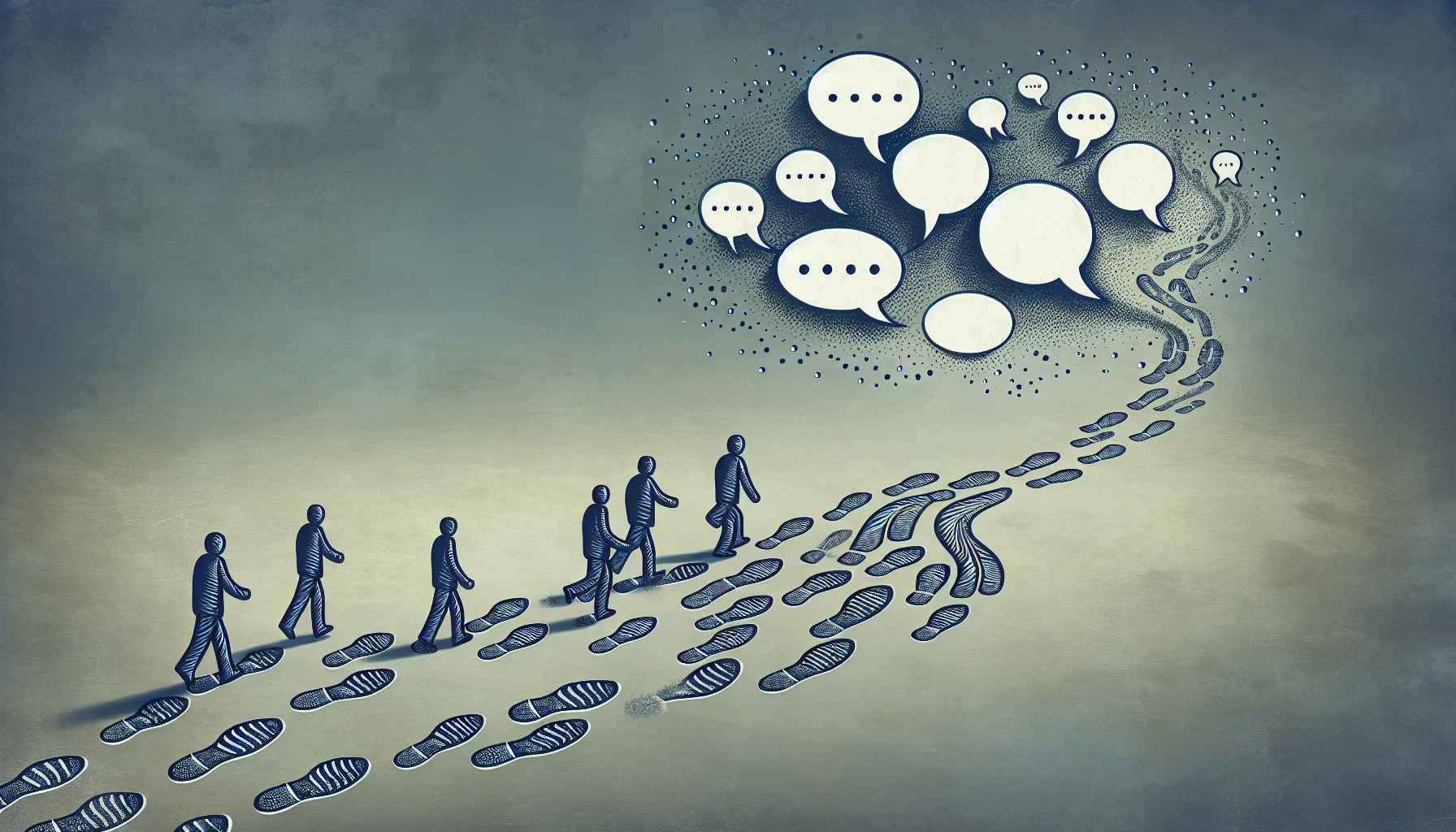The Cultural Impact of Hurricanes on Coastal Communities

In the aftermath of a hurricane, artists often find themselves compelled to express the chaos, beauty, and emotional turmoil that accompany such events. The destruction and subsequent rebuilding can serve as profound sources of inspiration for creativity. For instance, the Puerto Rican painter and muralist Maria de los Angeles uses her canvas to explore the interplay between destruction and rebirth. Her work often incorporates elements of nature before and after storms, illustrating the resilience of both the land and its people. "Art has the power to heal," she states. "When I paint, I’m not just depicting a storm; I’m capturing the spirit of survival." Similarly, literature has played a crucial role in documenting the experiences of those affected by hurricanes. Authors like Zora Neale Hurston and Jesmyn Ward have woven narratives that reflect the trials of hurricane survivors. Hurston’s depiction of the 1928 Okeechobee hurricane in *Their Eyes Were Watching God* showcases the deep connection between the characters and their environment, emphasizing how such disasters are not just physical events but pivotal moments in the human experience. The emotional resonance of these narratives fosters a shared understanding of the community's struggles and triumphs, creating a cultural legacy that endures beyond the immediate aftermath of the storm.
Cultural Narratives and Community Resilience
Hurricanes also influence local traditions, shaping the narratives that communities pass down through generations. In New Orleans, for example, the aftermath of Hurricane Katrina sparked a renaissance in storytelling, music, and community gatherings. The annual "Katrina Commemorations" have become a way for residents to remember those lost and to celebrate the resilience of their culture. Local musicians, influenced by the blues and jazz traditions, have created songs that encapsulate the heartbreak and hope that followed the storm. These cultural expressions serve not only as a means of processing grief but also as a way to forge a collective identity rooted in survival. Historian Dr. Sarah G. Anderson emphasizes the importance of these cultural narratives, stating, "Every hurricane has a story, and every community has a way of telling it. These stories not only preserve the memory of what happened but also foster a sense of identity and solidarity among the people." This sense of belonging is crucial for recovery, as communities come together to share their experiences and rebuild their lives in the face of adversity.
The Role of Education and Preservation
As communities rebuild, there is a concerted effort to integrate the lessons learned from hurricanes into educational programs. Schools in coastal regions often include curricula that focus on environmental science, disaster preparedness, and the cultural history of hurricanes. This proactive approach not only equips future generations with the knowledge to respond to natural disasters but also instills a sense of pride and responsibility towards preserving their cultural heritage. Museums and cultural centers have emerged as hubs for educating the public about the impacts of hurricanes on local heritage. Institutions like the Louisiana State Museum and the Museum of Florida History feature exhibits dedicated to hurricane history, showcasing artifacts, personal accounts, and artistic interpretations that illuminate the storms’ cultural significance. By preserving these narratives and artifacts, communities ensure that the lessons learned from past hurricanes are not forgotten, further solidifying their cultural identity and resilience.
Hurricanes may come and go, but their impact on coastal communities lasts a lifetime. Through art, literature, and cultural practices, these storms have shaped identities and fostered resilience in the face of adversity. As communities continue to navigate the challenges posed by climate change and increasingly severe storms, the stories and expressions that arise in the wake of hurricanes will remain vital to understanding not just the storms themselves, but also the human spirit's capacity to endure and thrive. By embracing the cultural narratives that emerge from these experiences, we not only honor those affected but also enrich our collective understanding of what it means to live in harmony with nature’s unpredictable forces. In the face of destruction, the resilience and creativity of coastal communities shine through, reminding us of the enduring power of the human spirit.
Community Resilience Coordinator
Local government agencies, non-profit organizations, and community development organizations
Core Responsibilities
Develop and implement community resilience programs focused on disaster preparedness and recovery.
Facilitate workshops and training sessions to educate residents about hurricane impacts and cultural preservation.
Collaborate with local organizations and government agencies to promote community engagement and resource sharing.
Required Skills
Strong communication and public speaking skills to effectively engage diverse community groups.
Experience in program development and project management within non-profits or local government.
Knowledge of disaster recovery processes and cultural heritage preservation.
Cultural Heritage Educator
Museums, educational institutions, cultural organizations, and community centers
Core Responsibilities
Design and deliver educational programs that highlight the cultural narratives surrounding hurricanes and their impacts.
Collaborate with local schools and museums to integrate hurricane history into the curriculum.
Conduct research on local cultural practices and their evolution post-disaster.
Required Skills
Background in education, cultural studies, or history, with a strong understanding of disaster impacts.
Ability to create engaging educational materials and interactive presentations.
Familiarity with local artists and historians to enhance program authenticity.
Environmental Artist
Art galleries, public art organizations, environmental non-profits, and cultural institutions
Core Responsibilities
Create site-specific installations and artworks that respond to the ecological and cultural landscapes affected by hurricanes.
Engage with local communities to incorporate their stories and experiences into artistic expressions.
Organize exhibitions and public art projects that raise awareness about climate change and its cultural implications.
Required Skills
Proficiency in various artistic mediums, including painting, sculpture, and digital media.
Strong understanding of environmental issues and the ability to convey complex themes through art.
Experience in community engagement and collaboration with local stakeholders.
Disaster Recovery Planner
Urban planning firms, government agencies, and non-profit organizations focused on disaster recovery
Core Responsibilities
Develop comprehensive disaster recovery plans that address both physical rebuilding and cultural preservation.
Analyze past hurricane impacts to inform future planning efforts and community resilience strategies.
Work with local governments and agencies to secure funding and resources for recovery initiatives.
Required Skills
Expertise in urban planning, environmental science, or related fields with a focus on disaster management.
Strong analytical and problem-solving skills to assess risks and develop effective strategies.
Ability to work collaboratively with diverse stakeholders, including community members and government officials.
Ethnohistorian
Universities, research institutions, museums, and cultural heritage organizations
Core Responsibilities
Conduct research on the historical and cultural impacts of hurricanes on specific communities, focusing on oral histories and local narratives.
Publish findings in academic journals and present at conferences to share insights on the cultural resilience of affected populations.
Collaborate with museums and cultural centers to curate exhibits that highlight historical narratives of hurricanes.
Required Skills
Advanced degree in history, anthropology, or a related field with a focus on ethnohistory or cultural studies.
Strong research and writing skills, with the ability to synthesize complex information for diverse audiences.
Experience in archival research and engaging with community members to gather oral histories.


